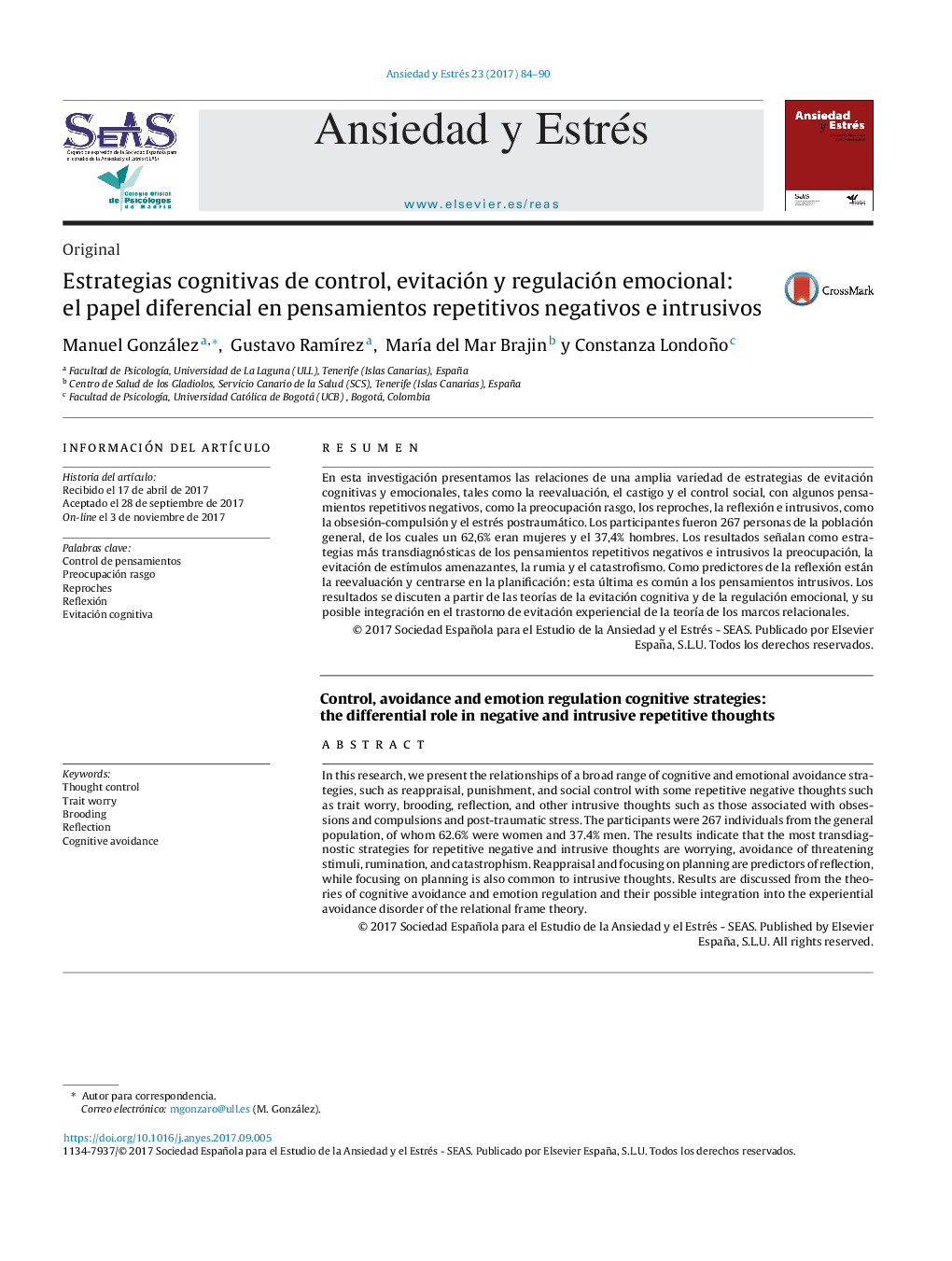ترجمه فارسی عنوان مقاله
استراتژی های شناختی کنترل، اجتناب و تنظیم عاطفی: نقش دیفرانس در افکار تکراری منفی و نفوذی
عنوان انگلیسی
Estrategias cognitivas de control, evitación y regulación emocional: el papel diferencial en pensamientos repetitivos negativos e intrusivos
| کد مقاله | سال انتشار | تعداد صفحات مقاله انگلیسی |
|---|---|---|
| 120019 | 2017 | 7 صفحه PDF |
منبع

Publisher : Elsevier - Science Direct (الزویر - ساینس دایرکت)
Journal : Ansiedad y Estrés, Volume 23, Issues 2â3, JulyâDecember 2017, Pages 84-90
ترجمه کلمات کلیدی
کنترل افکار، نگرانی صریح، اصلاحات بازتاب اجتناب شناختی، کنترل فکر، صفر نگرانم فریبنده بازتاب، اجتناب شناختی،
کلمات کلیدی انگلیسی
Control de pensamientos; Preocupación rasgo; Reproches; Reflexión; Evitación cognitiva; Thought control; Trait worry; Brooding; Reflection; Cognitive avoidance;
ترجمه چکیده
در این تحقیق روابط طیف گسترده ای از استراتژی های اجتنابی شناختی و احساسی مانند بازنشستگی، مجازات و کنترل اجتماعی با برخی افکار منفی تکراری مثل نگرانی صفت، افسردگی، انعکاس و دیگر افکار نفوذی نظیر مرتبط بودن با وسواس و اجبار و استرس پس از سانحه. شرکت کنندگان 267 نفر از جمعیت عمومی بودند که 62.6 درصد آنها زن و 37.4 درصد مردان بودند. نتایج نشان می دهد که بیشتر راهبردهای فراموشی برای افکار منفی و مزاحم تکراری نگرانی، اجتناب از محرک های تهدید کننده، نشستن و فاجعه است. ارزیابی مجدد و تمرکز بر برنامه ریزی، پیش بینی کننده بازتاب است، در حالی که تمرکز بر برنامه ریزی نیز برای افکار نفوذی رایج است. نتایج به دست آمده از نظریه های اجتناب شناختی و تنظیم عاطفه و ادغام احتمالی آنها در اختلال اجتناب عاطفی در نظریه ی روان شناختی بحث می شود.

